Low Vitamin D Linked to Cognitive Decline

Vitamin D has long been thought to protect against loss and damage of the brain’s neurons, and new research confirms that idea.*
A study from Duke University has found an association between low levels of vitamin D and an increased risk of impairment and cognitive decline in elderly subjects.
More than 1,200 participants 60 years or older from the Chinese Longitudinal Health Longevity Survey were involved in the first large-scale prospective research in Asia. Baseline vitamin D levels were measured at the beginning of the study and cognitive abilities were observed over the next two years.
The results showed that those with lower vitamin D were about twice as likely to show significant indications of cognitive decline over the course of the study. Participants’ gender and specific age had no bearing on the results.
Editor’s Note: This study should prompt further research into the precise mechanism by which vitamin D protects neurons, as it could lead to the discovery of treatments and interventions to fight the growing rate of cognitive decline seen in the elderly.
 |
Vitamin D has long been thought to protect against loss and damage of the brain’s neurons, and new research confirms that idea.*
A study from Duke University has found an association between low levels of vitamin D and an increased risk of impairment and cognitive decline in elderly subjects.
More than 1,200 participants 60 years or older from the Chinese Longitudinal Health Longevity Survey were involved in the first large-scale prospective research in Asia. Baseline vitamin D levels were measured at the beginning of the study and cognitive abilities were observed over the next two years.
The results showed that those with lower vitamin D were about twice as likely to show significant indications of cognitive decline over the course of the study. Participants’ gender and specific age had no bearing on the results.
Editor’s Note: This study should prompt further research into the precise mechanism by which vitamin D protects neurons, as it could lead to the discovery of treatments and interventions to fight the growing rate of cognitive decline seen in the elderly.
Brain Benefits of L-Theanine... and Family Health
March 2016

By Angela Sanford
There’s been a resurgence of interest in the anxiety-relieving powers of L-theanine, an amino acid found in green tea.
Discoveries over the past two years have uncovered exciting additional properties of this nutrient best known for inducing calming, tranquilizing effects while simultaneously improving alertness.
In this Research Update, we examine how L-theanine acts in the brain, and review compelling new studies on its actions that include potentially reduced risk of stroke and less brain damage if an ischemic stroke were to occur.
PROMOTE BRAIN HEALTH AND RELAXATION. CLICK HERE TO GET STARTED!
How L-Theanine Works in the Brain to Block Anxiety and Stress
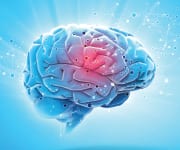
L-theanine relieves anxiety in large part because it bears a close resemblance to the brain-signaling chemical glutamate. L-theanine produces the opposite effect in the brain.
While glutamate is the brain’s most important excitatory neurotransmitter, L-theanine binds to the same brain cell receptors and blocks them to glutamate’s effects. This action produces inhibitory effects.1,2 That inhibition to brain overactivity has a calming, relaxing effect in which anxiety fades.
In addition to blocking excitatory stimuli at glutamate receptors in the brain, L-theanine also stimulates production of the inhibitory, relaxing neurotransmitter GABA, adding to its calming, anti-anxiety effects.2
Unlike prescription anti-anxiety drugs, however, some of which mimic GABA’s effects, L-theanine produces its anti-anxiety effects without producing sleepiness or impairing motor behavior. In fact, L-theanine has been shown in human studies to moderately improve alertness and attention while exerting its anxiety-reducing effects.5
Of particular interest are studies showing that L-theanine supplementation prevents the abrupt rise in blood pressure that some people experience under stress.1 The reason this is so critical is that many people have normal blood pressure readings at rest that spike up to dangerously high levels when subjected to stressful situations.
These periods of surging blood pressure inflict massive arterial damage and are the main reason why at-home and at-office blood pressure testing are so important.
PROMOTE BRAIN HEALTH AND RELAXATION. CLICK HERE TO GET STARTED!
New Directions for L-Theanine
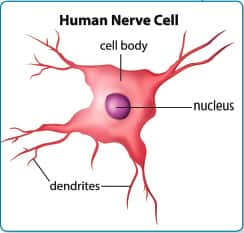
Scientists are now increasingly interested in applications for L-theanine far beyond its anti-anxiety properties. Excessive glutamate stimulation of brain cells (excitotoxicity) is a factor in development of long-term neurodegenerative disorders, stroke, and schizophrenia.6,7 Therefore, L-theanine’s glutamate-blocking capabilities make it promising for neuroprotection and prevention in these areas.
And while its deeper mechanisms are still under investigation, there is tantalizing evidence that L-theanine influences expression of genes in brain areas responsible for fear and aggression (amygdala) and memory (hippocampus), helping to balance the behavioral responses to stress, and potentially improve conditions such as mood disorders, post-traumatic stress disorder (PTSD), and substance dependence.
PROMOTE BRAIN HEALTH AND RELAXATION. CLICK HERE TO GET STARTED!
L-Theanine Protects Brain Cells and Promotes Cognitive Function
There’s a link between anxiety, reaction to stress, and the brain’s most fundamental function, maintaining cognition. Studies over the past two years suggest a potential role for L-theanine in supporting cognitive function and preventing its loss.
Stress has powerful negative effects on one’s ability to think clearly and make smart decisions. This is demonstrated physiologically by animal experiments showing that stress significantly reduces animals’ performance on standard tests of learning and memory, as well as by increased oxidative stress in the brain and elevated blood levels of stress-response hormones such as catecholamine and adrenaline. Treating animals with L-theanine before the stress is applied, however, results in reversal not only of cognitive impairment, but also of the elevation of stress hormones and oxidative damage.9
Studies such as these demonstrate that L-theanine can specifically reduce the molecular impacts of acute stress, and the resulting excitotoxicity, on brain cells.10,11 The issue with chronic glutamate-driven excitotoxicity is profound and long-lasting cognitive dysfunction, including neurodegenerative disorders such as Alzheimer’s, Parkinson’s, Huntington’s diseases, and amyotrophic lateral sclerosis (ALS).12
PROMOTE BRAIN HEALTH AND RELAXATION. CLICK HERE TO GET STARTED!
 |
Taste the Relaxation
The molecular similarity of L-theanine with glutamic acid can be experienced simply by tasting it. L-theanine provides the umami flavor that gives green tea its richness.31 One of the more common molecules that delivers umami taste is glutamic acid, and studies show that glutamate and L-theanine both stimulate the same receptors on our tongues, in a vivid demonstration of molecular mimicry.32,33
In the brain, of course, the similarity is only close enough for L-theanine to bind to brain glutamate receptors but without stimulating them, which is why L-theanine produces relaxing, as opposed to stimulating, effects.
L-Theanine Reduces Stroke Impact
A stroke is the result of a sudden blockage of blood (ischemia) to a part of the brain, resulting in massive chemical stresses, extreme excitotoxicity, and eventual death of brain cells.21 The latest studies show that L-theanine has properties that may both help to prevent strokes and to mitigate the damage caused when they do occur.
Lab studies show that L-theanine is capable of significantly improving nitric oxide production in endothelial (artery-lining) cells.22 This has the potential to lower stroke risk because nitric oxide is a signaling molecule that endothelial cells use to communicate information about blood flow and pressure to muscles in the artery walls, telling them to constrict or relax appropriately in response and distributing blood flow appropriately.
PROMOTE BRAIN HEALTH AND RELAXATION. CLICK HERE TO GET STARTED!

#GetHealthyAmerica
Theanine is the predominant amino acid of tea that produces calming effects in the brain by increasing levels of serotonin and dopamine, and blocking the binding of L-glutamic acid to glutamate receptors.1-18 Life Extension customers can enjoy the benefits of this unique ingredient in a 100 mg supplement. This "feel good" supplement causes no adverse reactions. In fact, in Japan, theanine is added to soft drinks and chewing gum for the purpose of inducing relaxation.
CLICK HERE FOR COMPLETE ARTICLE OTHER NEW RESEARCH AND FINDINGS AT LIFE EXTENSION MAGAZINE.
New Study: Slow Brain Aging
New England Journal of Medicine: Landmark 2016 Report
Until recently, Alzheimer’s disease was viewed as an incurable consequence of aging. Nearly everyone predicted an explosion of dementia victims as the Baby Boomer population matures past 60 years. That pessimistic theory was turned upside down in a landmark 2016 report. This study, published in the New England Journal of Medicine, reveals that overall dementia incidence declined by about 10%-20% per decade starting in the 1980's. We at Life Extension® attribute the decline in dementia to Americans adopting healthier dietary/lifestyle practices, along with more aggressive interventions to protect vascular health. Solid research findings substantiate our position. Steps people can take today to reduce dementia risk include protecting against inflammation, hypertension, and mitochondrial dysfunction. Missing from this prevention strategy up until now is a way to reverse the structural changes observed in brain cells of Alzheimer’s patients. This article reveals a novel and low-cost method of restoring cognitive function lost to normal aging.
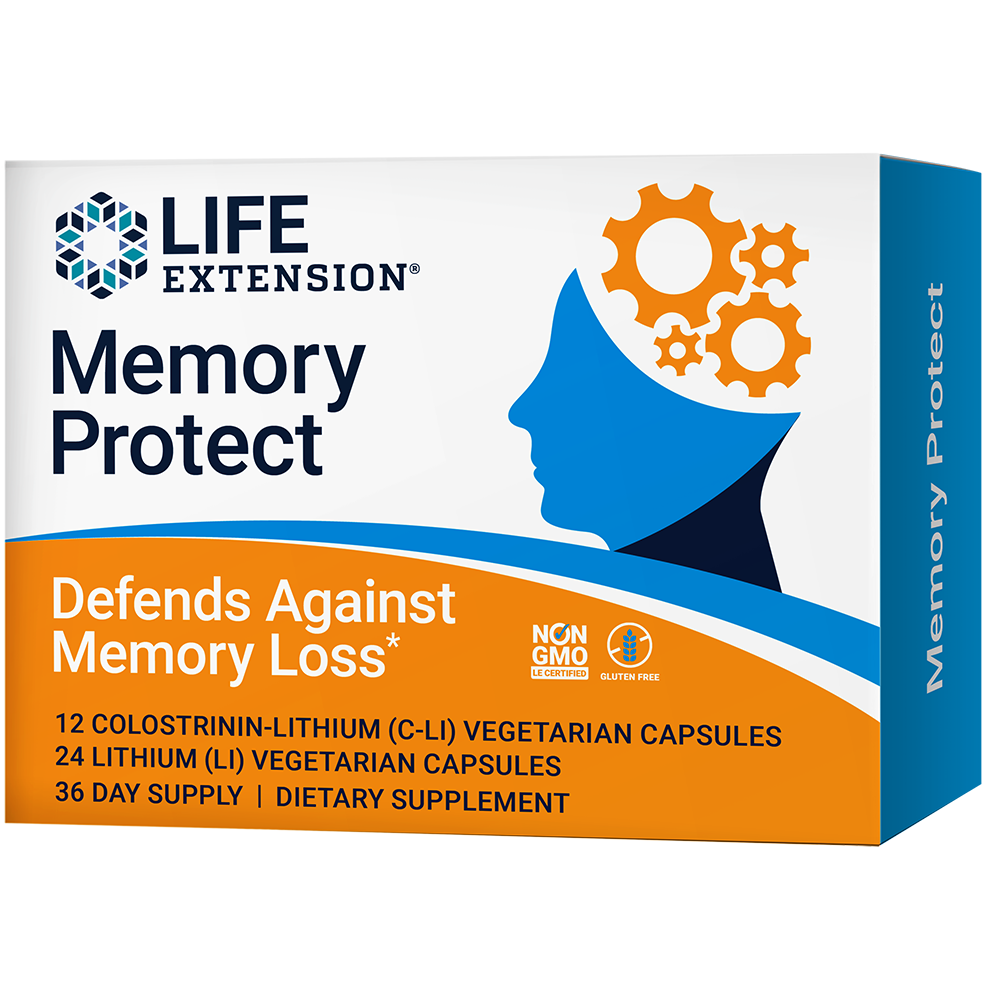
Get NEW! Life Extension® Memory Protect:Powerful Dual-Action Cognition & Memory Support 
In order to understand how Alzheimer’s dementia develops, you should know the structural damage that occurs in your brain as a part of normal aging.
Human Study Shows that Lithium Preserves Cognition

A study involving Alzheimer’s patients was conducted using micro-dose lithium, administered at 300 mcg per day for 15 months. Cognitive impairment was evaluated by scores on the Mini-Mental State Examination. At the outset of the study there were no significant differences in Mini-Mental State Examination scores between treated and control Alzheimer’s subjects. The maximum Mini-Mental State Examination score is 30 points. A score of 20 to 24 suggests mild dementia, 13 to 20 suggests moderate dementia, and less than 12 indicates severe dementia. By 90 days, statistical analysis revealed that Alzheimer’s subjects treated with micro-dose lithium had cognitive performance scores that remained stable, while patients taking the placebo experienced a decrease in cognitive performance scores. The placebo group of Alzheimer’s patients was approximately 3 points below the lithium-treated group (17.37 vs. 20.60) during the initial study period, and by the end of the study, placebo controls were approximately 5 points below the lithium-treated Alzheimer’s group (14 vs. 19.82). Astonishingly, this study demonstrated that there was virtually no further cognitive decline during the study period in Alzheimer’s patients supplemented with micro-
 dose lithium.
dose lithium.
Get NEW! Life Extension® Memory Protect:Powerful Dual-Action Cognition & Memory Support 
Proline-Rich Polypeptide Reverses Neurologic Decline

Summary

For full article and references, go to Life Extension® Magazine Alzheimer’s Disease: Landmark Study 
To begin your journey to Optimal Brain Health, go to the BEST source for New Health and Medical Findings From Around the World! LIFE EXTENSION!
Get NEW! Life Extension® Memory Protect:Powerful Dual-Action Cognition & Memory Support 

Memory Protect
- 12 Colostrinin-Lithium (C-Li) Capsules | 24 Lithium (Li) Capsules
- Item Catalog Number: 02101
Memory Protect combines a unique colostrinin polypeptide complex with the trace mineral lithium for unrivaled memory and cognitive health support for the aging brain. Colostrinin supports cognition, memory, and also inhibits inflammatory factors in the brain which can lead to reduced cognitive function and memory loss. And research now shows that lithium helps inhibit an enzyme sometimes associated with cognitive decline, as well as providing benefits for longevity and mood. Harness the power of Memory Protect … and help maintain your brain.
Benefits at a Glance
NEW! BABY BOOMERS! Join the Baby Boomers Wellness Club

- Promotes healthy memory and cognitive health
- Supports the natural breakdown of abeta proteins
- Encourages healthy tau protein function
- Inhibits GSK3 enzyme production
- Helps maintain brain glucose levels already within normal range
NEW! BABY BOOMERS! Join the Baby Boomers Wellness Club Get Special Discounts on Your Nutrients... SAVE UP TO 25%
Get Special Discounts on Your Nutrients... SAVE UP TO 25%
Taurine: Powerful Brain Protection
Taurine: Powerful Brain Protection for Aging Brains
Taurine and Brain Health
New discoveries are highlighting the roles that taurine plays in preserving the human mind. The importance of supporting brain taurine concentrations, which decline with aging, is rising to the forefront of cognitive science. Taurine supplementation can help to mitigate age-related losses of memory and learning functions.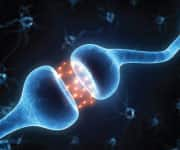
- Protects brain cells against environmental toxins including lead and organic pesticides
- Prevents dysfunction of mitochondria within brain cells, thereby sustaining energy levels
- Protects brain cells against excitotoxicity, the chemically stressful effects of overstimulated brain cells
- Enhances the inhibitory systems driven by the “relaxing” neurotransmitter GABA, which directly opposes excitotoxic effects
- Cooperates with other neurotransmitters to promote induction of long-term potentiation, which is the neurological process by which memories are formed and retained during learning
- Reduces brain inflammatory processes that are active in production of neurodegenerative disorders such as Alzheimer’s and Parkinson’s diseases
- Stimulates proliferation and new neuron formation to sustain learning and memory
- Protects brain cells against destruction following a stroke
- Attenuates damage caused by beta amyloid protein, a major contributing factor in Alzheimer’s disease
Studies Reveal Taurine’s Neuroprotective Effects
 Supplemental taurine has a major impact on the adult brain as well as the developing brain, with the ultimate result that the taurine-supplemented brain appears to age more slowly than it might otherwise.
Supplemental taurine has a major impact on the adult brain as well as the developing brain, with the ultimate result that the taurine-supplemented brain appears to age more slowly than it might otherwise.Environmental Toxins
Environmental toxins, long known to contribute to congenital brain defects seen in newborns, are now increasingly recognized as factors in causation of adult neuro-degenerative disorders including Parkinson’s and Alzheimer’s disease.20-23 Taurine appears to play a role in protecting brain cells against a variety of environmental toxins. A recent study showed that rats exposed to either a dangerous pesticide called CPF, lead acetate, or both toxins, showed biochemical damage leading to visible degeneration of brain tissue. When the animals were co-treated with taurine, those changes were prevented.8
These findings may have increased urgency as Americans discover just how our public infrastructure has failed to protect us against lead and other toxins in our water supplies.24
Taurine’s multiple mechanisms of action fight brain aging in other important ways, particularly by protecting the brain against internal age-accelerating forces.
For decades, scientists believed that adult brain cells could not reproduce, nor could new brain cells be generated afresh. Studies with taurine are turning that dogma on its head.
A recent study showed that rats exposed to either a dangerous pesticide called CPF, lead acetate, or both toxins, showed biochemical damage leading to visible degeneration of brain tissue. When the animals were co-treated with taurine, those changes were prevented.8
These findings may have increased urgency as Americans discover just how our public infrastructure has failed to protect us against lead and other toxins in our water supplies.24
Taurine’s multiple mechanisms of action fight brain aging in other important ways, particularly by protecting the brain against internal age-accelerating forces.
For decades, scientists believed that adult brain cells could not reproduce, nor could new brain cells be generated afresh. Studies with taurine are turning that dogma on its head.
New Brain Cell Growth
New brain cell growth was demonstrated in an exciting study released in 2015. Swiss scientists discovered that feeding middle-aged mice taurine could trigger rapid growth in populations of stem cells in the brain and greatly promote their subsequent differentiation into functioning adult brain cells. This effect had previously been shown in studies of cultured adult-mouse brain stem cells. And another 2015 study demonstrated that human-brain stem cells in culture underwent the same type of proliferation and specialization demonstrated in the animal studies.
*Together, these studies mean that humans are likely to be able to stimulate new brain cell development, and foster rapid synaptic connections between them with taurine. To begin your journey to optimal brain health, go to the BEST source for New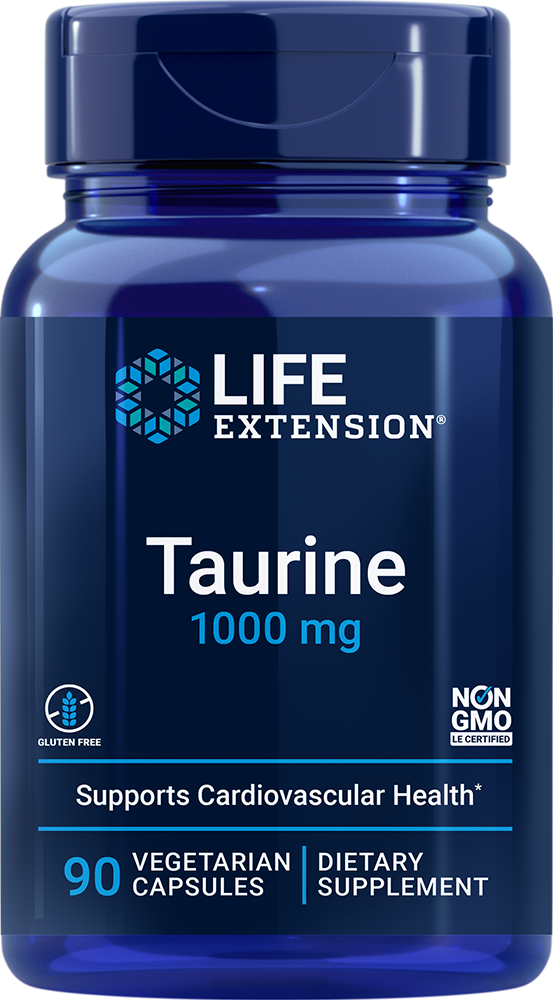 Health and Medical Findings From Around the World! LIFE EXTENSION!
***Protect YOUR Aging Brain TODAY with Taurine: TAURINE: Boosts Brain Cell Regeneration and Supports Whole-Body Health
Health and Medical Findings From Around the World! LIFE EXTENSION!
***Protect YOUR Aging Brain TODAY with Taurine: TAURINE: Boosts Brain Cell Regeneration and Supports Whole-Body HealthNeurodegenerative Diseases
Neurodegenerative diseases rob aging adults of memory, function, and dignity. Taurine has significant favorable impact on the malformed and toxic proteins that accumulate in the aging brain, leading to Alzheimer’s and Parkinson’s diseases.
dignity. Taurine has significant favorable impact on the malformed and toxic proteins that accumulate in the aging brain, leading to Alzheimer’s and Parkinson’s diseases.
Taurine can prevent damage wrought on brain cells by the malformed Alzheimer’s-related protein called beta amyloid. That mechanism may have been at work in a recent mouse model study of Alzheimer’s, in which six weeks of taurine added to drinking water rescued mice from developing cognitive deficits. In this study taurine supplementation restored cognitive function to that of age-matched normal mice.19
Elevated blood glucose and insulin resistance severely damage the brain. Some researchers now refer to Alzheimer’s as “type III diabetes.” In 2015, a study showed that taurine supplementation in mice could increase brain insulin receptors, an effect that might prove to be protective against the disease.
Ischemic strokes are the result of an abrupt reduction in blood flow to specific brain regions. Strokes not only cause immediate symptoms, but also contribute to accelerated brain aging over the longer term. Once again, a role for taurine supplementation is evident.
Taurine appears to protect brain cells from the oxidative stress induced during a stroke, and to slow subsequent brain cell death. Chronic cellular destruction contributes to neurological problems in stroke survivors, so preventing it is an important approach to mitigating stroke damage. A mouse study has shown that adding taurine to another emerging stroke drug improved performance on neurological tests, while the drug alone was ineffective.
To begin your journey to optimal brain health, go to the BEST source for New Health and Medical Findings From Around the World! LIFE EXTENSION! ***Protect YOUR Aging Brain TODAY with Taurine: TAURINE: Boosts Brain Cell Regeneration and Supports Whole-Body Health
***Protect YOUR Aging Brain TODAY with Taurine: TAURINE: Boosts Brain Cell Regeneration and Supports Whole-Body HealthWHAT YOU NEED TO KNOW:
Protect Aging Brains with Taurine
- Brain aging is not inevitable as new studies reveal that certain nutrients may have an age-decelerating effect.
- Taurine, an abundant amino acid in the human body, has many brain-protective properties, but taurine levels fall with advancing age.
- New studies show that taurine may play a major role in protecting the brain from exposure to toxic chemicals from water supplies and other environmental sources.
- Taurine stimulates new brain cell formation, providing a potential source for replacement of aging, damaged brain cells.
- Taurine supplementation may slow or prevent Alzheimer’s disease by effects on toxic beta amyloid proteins, and also by improving blood sugar control.
- Taurine prevents brain cell death following a stroke, helping to preserve neurological function.
- Taurine is likely to emerge as a major component of modern regimens aimed at slowing brain aging.
 ***Protect YOUR Aging Brain TODAY with Taurine: TAURINE: Boosts Brain Cell Regeneration and Supports Whole-Body Health
***Protect YOUR Aging Brain TODAY with Taurine: TAURINE: Boosts Brain Cell Regeneration and Supports Whole-Body HealthNEW! STOP! MUST READ!
Boston University Researchers Find Link Between Brain Damage And Excess Sugar In Soda [Video]
A new study by Boston University has shown that excess sugar, particularly those found in sugary drinks, can cause brain damage. The U.S. Department of Agriculture noted that Americans consumed about 11 million metric tons last year. The researchers used data from the Framingham Heart Study (FHS) and discovered that people who often consume sugary drinks have higher chances of experiencing poorer memory. It was also found that they have a smaller overall brain volume and a smaller hippocampus, which is the part of the brain that helps with learning and memory.
https://youtu.be/HpszDA_UpuIFOR MORE INFO, CLICK THE FOLLOWING LINK:
http://www.universityherald.com/articles/73645/20170422/boston-university-researchers-find-link-between-brain-damage-excess-sugar.htm
FHF PREFERRED AFFILIATE SITES:




No comments:
Post a Comment